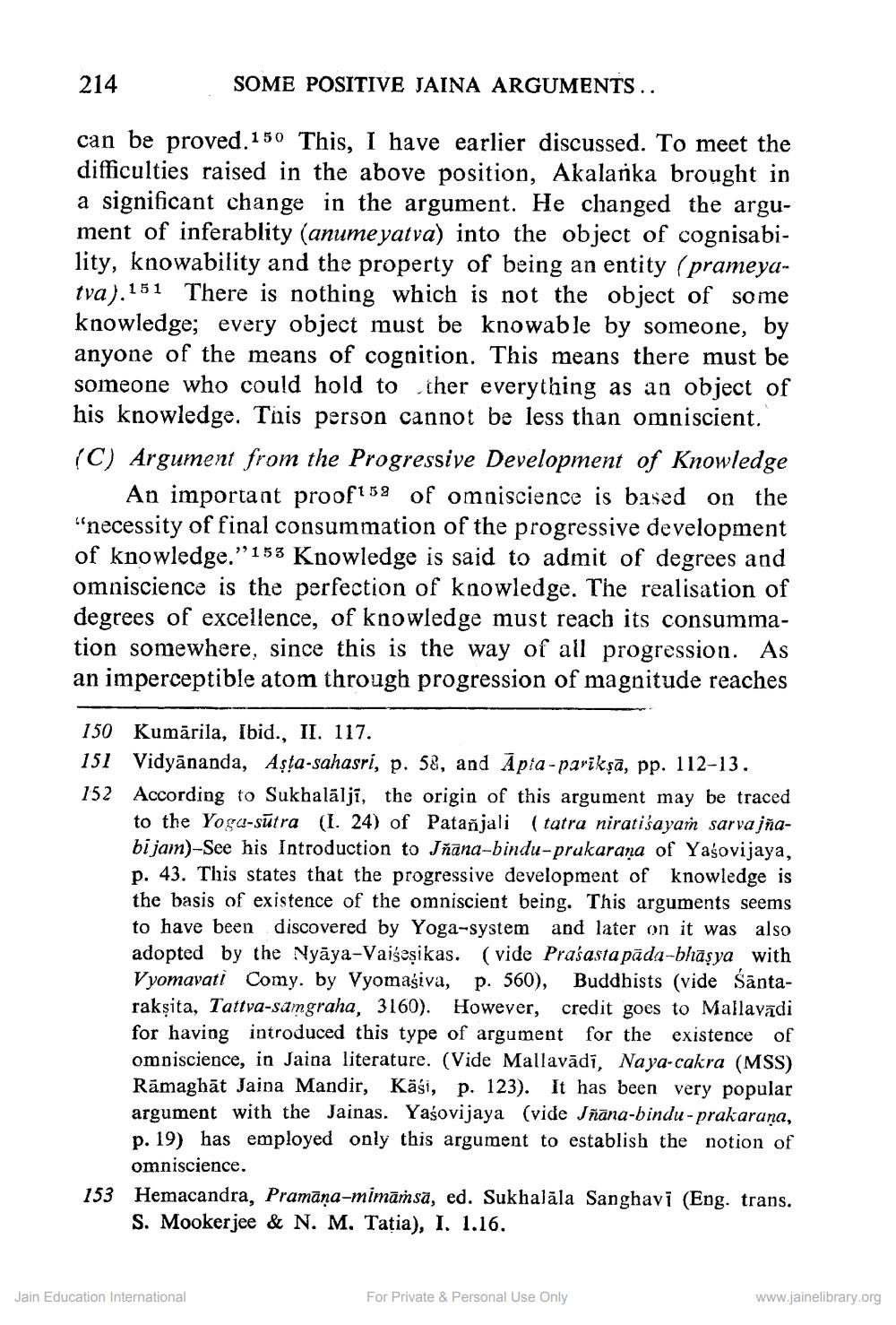________________
214
SOME POSITIVE JAINA ARGUMENTS.. SOME POSITIVE JAI
can be proved.150 This, I have earlier discussed. To meet the difficulties raised in the above position, Akalarka brought in a significant change in the argument. He changed the argument of inferablity (anume yatva) into the object of cognisability, knowability and the property of being an entity (prameyatva). 151 There is nothing which is not the object of some knowledge; every object must be knowable by someone, by anyone of the means of cognition. This means there must be someone who could hold to ther everything as an object of his knowledge. This person cannot be less than omniscient. (C) Argument from the Progressive Development of Knowledge
An important proof 152 of omniscience is based on the “necessity of final consummation of the progressive development of knowledge."153 Knowledge is said to admit of degrees and omniscience is the perfection of knowledge. The realisation of degrees of excellence, of knowledge must reach its consummation somewhere, since this is the way of all progression. As an imperceptible atom through progression of magnitude reaches
150 Kumārila, Ibid., II. 117. 151 Vidyānanda, Asta-sahasri, p. 58, and Apia-parikṣā, pp. 112-13. 152 According to Sukhalálji, the origin of this argument may be traced
to the Yoga-sūtra (I. 24) of Patañjali (tatra niratiśayam sarva jñabijam)-See his Introduction to Jñana-bindu-prukarana of Yasovijaya, p. 43. This states that the progressive development of knowledge is the basis of existence of the omniscient being. This arguments seems to have been discovered by Yoga-system and later on it was also adopted by the Nyāya-Vai esikas. (vide Prasasta pāda-bhāşya with Vyomavati Comy. by Vyomašiva, p. 560), Buddhists (vide Sāntaraksita, Tattva-sämgraha, 3160). However, credit goes to Mallavādi for having introduced this type of argument for the existence of omniscience, in Jaina literature. (Vide Mallavādi, Naya-cakra (MSS) Rāmaghāt Jaina Mandir, Käsi, p. 123). It has been very popular argument with the Jainas. Yasovijaya (vide Jñana-bindu - prakarana,
19) has employed only this argument to establish the notion of
omniscience. 153 Hemacandra, Pramāna-mimāṁsā, ed. Sukhalāla Sanghavi (Eng. trans.
S. Mookerjee & N. M. Tatia), I. 1.16.
Jain Education International
For Private & Personal Use Only
www.jainelibrary.org




